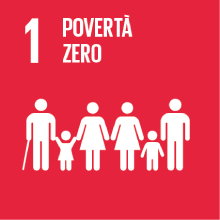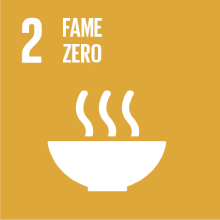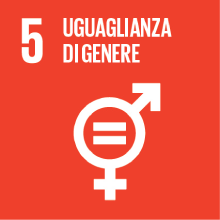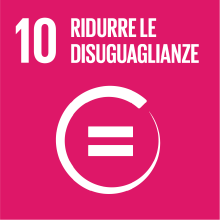SOCIETA' CONTEMPORANEA DEL SUD-EST ASIATICO
- Anno accademico
- 2021/2022 Programmi anni precedenti
- Titolo corso in inglese
- CONTEMPORARY SOCIETY OF SOUTHEAST ASIA
- Codice insegnamento
- LT2970 (AF:348013 AR:185648)
- Lingua di insegnamento
- Inglese
- Modalità
- In presenza
- Crediti formativi universitari
- 6
- Livello laurea
- Laurea
- Settore scientifico disciplinare
- L-OR/21
- Periodo
- I Semestre
- Anno corso
- 1
- Sede
- VENEZIA
- Spazio Moodle
- Link allo spazio del corso
Inquadramento dell'insegnamento nel percorso del corso di studio
Risultati di apprendimento attesi
Prerequisiti
Contenuti
Testi di riferimento
Duara, Prasenjit (2013): ‘Asia Redux: Conceptualizing a Region for Our Times’; in: Duara, Prasenjit (ed.): Asia Redux. Conceptualizing a Region for Our Times. Singapore: Institute of Southeast Asian Studies, pp. 1-28 [pdf]; Raben, Remco (2014): The colonial intrusion: boundaries and structures; in: Owen, Norman G. (ed. 2014): Routledge Handbook of Southeast Asian History. London and New York: Routledge, pp. 25-35; Winichakul, Tongchai and Eric Tagliacozzo (2014): Gradations of colonialism in Southeast Asia’s “in-between” places; in: Owen, Norman G. (ed. 2014): Routledge Handbook of Southeast Asian History. London and New York: Routledge, pp. 36-45.
Unit 3:
Derichs, Claudia (2014): “Constitutional Rights in Multiethnic States – The Case of Malaysia”; in: Ehlers, Dirk/Henning Glaser/Kittisak Prokati (eds.): Constitutionalism and Good Governance: Eastern and Western Perspectives. Baden-Baden: Nomos 2014, pp. 255-279. Derichs, Claudia (2004): “Malasia: Política y modernidad islámica [Malaysia: Politics and Islamic Modernity],” in: Baglioni, Sebastián D./Juan Ignacio Piovani (eds.): El sudeste asiático. Una visión contemporánea [Southeast Asia. A Contemporary View]. Buenos Aires: Universidad Nacional de Tres de Febrero, S. 69-95.
Unit 4:
Derichs, Claudia & Mark R. Thompson (2013): Introduction; Derichs, Claudia (2013): Conclusion; both in: Claudia Derichs & Mark R: Thompson (eds.): Dynasties and Female Political Leaders in Asia. Gender, Power and Pedigree. Berlin et al.: LIT, pp. 11-26 / 381-86.
Unit 5:
Tho Seeth, Amanda (2021): "Indonesian Islamic Academia as a Transregional Political Actor: Understanding Global Agency through Local History"; forthcoming in: Knorr, Lina et al (eds.): Local Perspectives on Global Issues. A transregional reader. World Scientific, 2021, forthcoming. Note: unpublished chapter, do not cite or disseminate
Unit 6:
Gottowik, Volker (2010): Transnational, translocal, transcultural: Some remarks on the relations between Hindu-Balinese and Ethnic Chinese in Bali. Sojourn: Journal of Social Issues in Southeast Asia 25(2): 178-212.
Unit 7:
Leow, Rachel (2016): in: Leow, Rachel: Taming Babel: Language in the Making of Malaysia. Cambridge: Cambridge University Press.
Unit 9:
Lücking, M. (2021). Breaching Boundaries in Muslim and Christian Tourism from Indonesia to Israel and Palestine. TRaNS: Trans -Regional and -National Studies of Southeast Asia, 1-16. doi:10.1017/trn.2021.12
Unit 11:
Müller, D. M. (2015). Islamic Politics and Popular Culture in Malaysia: Negotiating normative change between shariah law and electric guitars; in: Indonesia and the Malay World 43(127), 318-344.
Unit 13:
Articles or film clips for each group of actors are provided in advance for small groups of students who then search on their own for additional material, data, and sources.
Modalità di verifica dell'apprendimento
Modalità di esame
Metodi didattici
Altre informazioni
Unit 2:
Owen, Norman G. (ed. 2014): Routledge Handbook of Southeast Asian History. London and New York: Routledge; Wang Gungwu (ed. 2005): Nation-Building. Five Southeast Asian Histories. Singapore: Institute of Southeast Asian Studies.
Unit 3:
Rüland, Jürgen (2006): Southeast Asia: New Research Trends in Political Science and International Relations; in: Journal of Southeast Asian Affairs 25(4): 83-107. https://nbn-resolving.org/urn:nbn:de:0168-ssoar-337213 (open access); Huang, Xiaomin and Jason Young (2017): Politics in Asia Pacific. An Introduction. 2nd edition. London: Palgrave Macmillan; Kuhonta, Erik Martinez, Dan Slater and Tong Vu (eds. 2008): Southeast Asia in Political Science. Theory, Region and Qualitative Analysis. Stanford. Stanford University Press.
Unit 4:
Rüland, Jürgen et al. (2005): Parliaments and Political Change in Asia. Singapore: Institute of Southeast Asian Studies; Ziegenhain, Patrick (2008): The Indonesian Parliament and Democratization. Singapore: Institute of Southeast Asian Studies;
Unit 5:
Allès, D., & Tho Seeth, A. (2021). From Consumption to Production: The Extroversion of Indonesian Islamic Education. TRaNS: Trans -Regional and -National Studies of Southeast Asia, 1-17. doi:10.1017/trn.2021; Shamsul, Amri Baharuddin and Azmi Aziz: Colonial Knowledge and the Reshaping of Islam, the Muslim and Islamic Education in Malaysia; in: Kamaruzzaman Bustamam-Ahmad & Patrick Jory (eds. 2011): Islamic Thought in Southeast Asia: New Interpretations and Movements. Kuala Lumpur: The University of Malaya Press, pp. 113-35.
Unit 6:
Freitag, Ulrike, and Achim Von Oppen. Translocality: the study of globalising processes from a southern perspective. Brill, 2010; Rother, Stefan (2020): Migration Governance through Transnational Connectivity? The Asian Inter-Parliamentary Caucus on Labour Migration. Freiburg, Arnold Bergstraesser Institute. Occasional paper No. 46. [download from: https://www.southeastasianstudies.uni-freiburg.de/publications-1/occasional-paper-series-southeast-asian-studies-at-freiburg ]; Middell, Matthias (ed. 2018): The Routledge Handbook of Transregional Studies. London & New York: Routledge.
Unit 7:
Guan, L. H., & Suryadinata, L. (Eds.). (2007). Language, Nation and Development in Southeast Asia. Institute of Southeast Asian Studies; Low, Ee-Ling, & Azirah Hashim (eds. 2012): English in Southeast Asia: Features, policy and language in use. Amsterdam & Philadelphia: John Benjamins Publishing.
Unit 9:
Bruckmayr, Philipp (2006): The Cham Muslims of Cambodia: From Forgotten Minority to Focal Point of Islamic Internationalism, in: American Journal of Islamic Social Sciences, 23(3), 1-23; Bruckmayr, Philipp (2019): Cambodia’s Muslims and the Malay World: Malay Language, Jawi Script, and Islamic Factionalism from the 19th Century to the Present. Leiden: Brill.
Unit 11:
Clammer, John (2003): Globalisation, class, consumption and civil society in South-East Asian cities, in: Urban Studies 40(2): 403-419; Yeoh, Brenda S.A. (2004): Cosmopolitanism and its exclusions in Singapore, in: Urban Studies 41(12): 2431-2445; Fischer, J. (2016). Islamic Mobility: Car culture in Modern Malaysia, in: Journal of Consumer Culture 16(2): 572-591
Obiettivi Agenda 2030 per lo sviluppo sostenibile
Questo insegnamento tratta argomenti connessi alla macroarea "Povertà e disuguaglianze" e concorre alla realizzazione dei relativi obiettivi ONU dell'Agenda 2030 per lo Sviluppo Sostenibile





